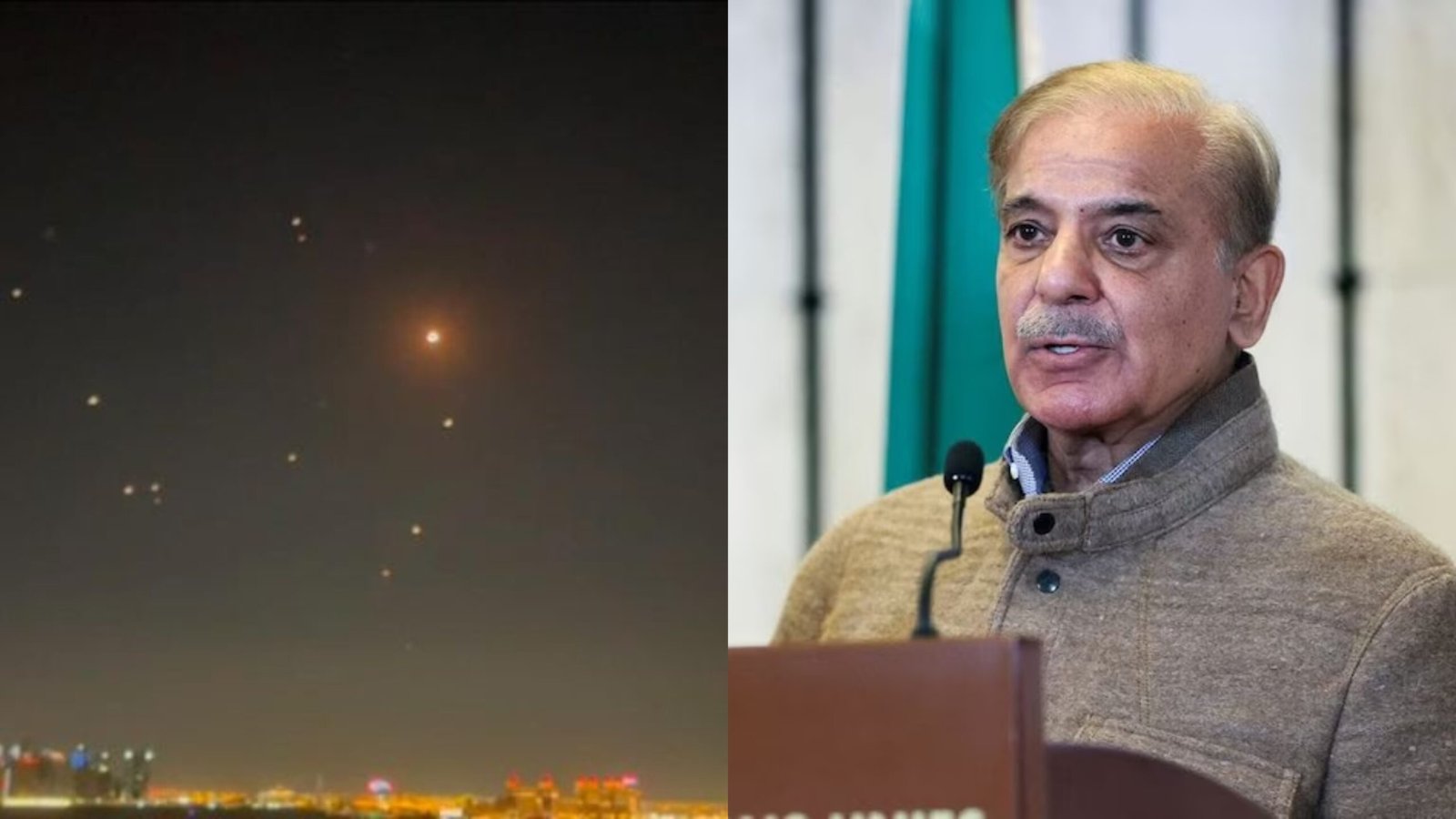
Pakistan Urges Calm After Iran’s Missile Strike on US Base in Qatar
In the wake of Iran’s missile strike on the US Al Udeid Air Base in Qatar, the largest American military facility in the region, Pakistan’s Prime Minister Shehbaz Sharif has stepped in to call for calm. With tensions in the Middle East rapidly spiralling, the prime minister held emergency discussions with Qatar and Saudi Arabia, underscoring Islamabad’s role as a voice for restraint and dialogue in the region.
While expressing solidarity with Qatar in a phone call to Ambassador Ali Mubarak Ali Essa Al-Khater, PM Sharif conveyed Pakistan’s “serious concern” over the escalation. He stressed that all efforts must now focus on defusing tensions in Middle East before they erupt into a full-scale regional crisis. The Qatari envoy thanked the premier for his swift outreach, calling it a reassuring sign of strong bilateral ties.
Islamabad-Saudi coordination for de-escalation after Iran’s missile strike
In a separate call, PM Sharif spoke with Saudi Ambassador Nawaf bin Saeed Al Malkiy to stress the importance of joint efforts in pursuing a peaceful resolution. “Pakistan will continue to work closely with the Kingdom of Saudi Arabia to intensify peace efforts,” Sharif said, as he reaffirmed Pakistan’s commitment to regional stability amid growing uncertainty.
The Saudi envoy echoed the sentiment, agreeing that both nations must act in tandem and maintain high-level coordination in preventing further deterioration. As tensions in the Middle East continue to mount, Riyadh and Islamabad’s alignment could prove pivotal in any diplomatic breakthrough.
Earlier today, Iran launched a significant missile barrage targeting Al Udeid Air Base in Qatar. The move was framed as retaliation for recent US airstrikes on Iran’s Fordow, Isfahan, and Natanz nuclear facilities, strikes which used bunker-busting bombs and were described by Washington as “preventive, not provocative.”







